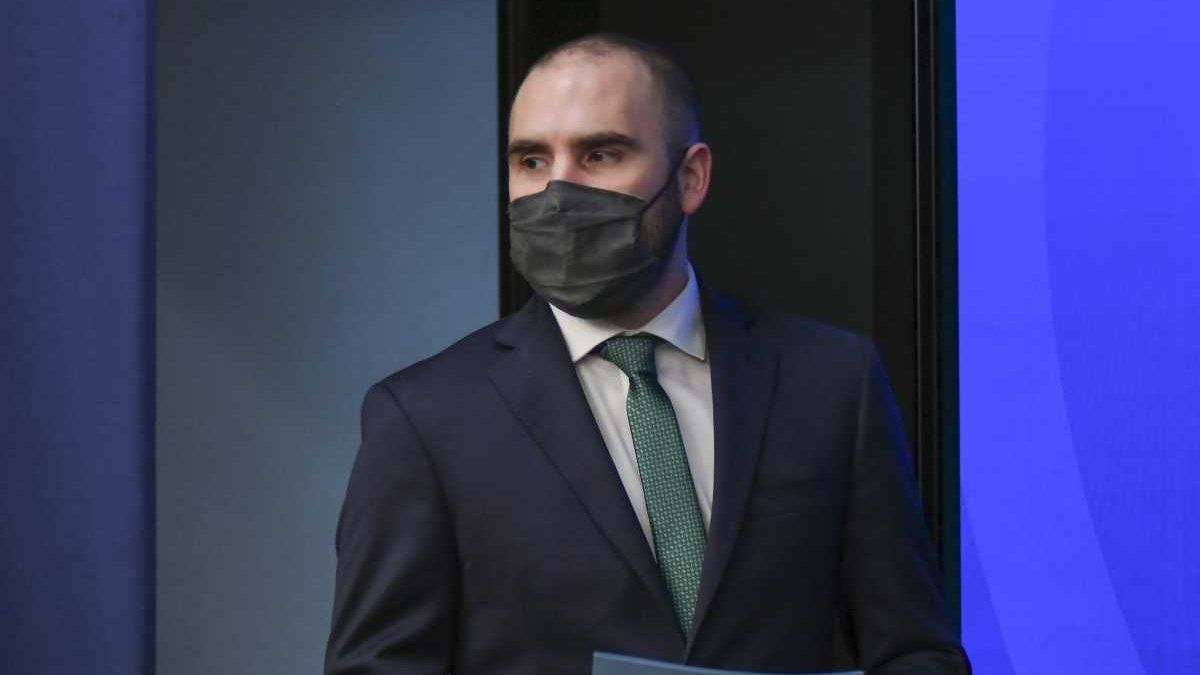If there is agreement in the Government, it is in relation to inflation. According to the minister in a recent interview prior to his trip to Russia, “With the agreement we reached, Argentina will continue to create jobs, grow, gradually we will be able to lower inflation… the greater the support, the more chances We’re going to have to do better.” The agreement with the Fund would guarantee a less erratic exchange rate policy, which, after all, is the one that impacts prices. Roberto Feletti, Secretary of Domestic Trade who works side by side with the Minister of Economy to go towards that price policy that helps as an anchor to inflation, estimated yesterday that January inflation will be high again but that in March, it will go down. The truth is that the pressure on prices will be influenced by two variables: tariff segmentation and the recent increase in fuel prices. Therefore, inflation will be, at least in the first part of the year, very high.
According to the latest market report published by the Central Bank, for January, the estimated inflation was 3.8%, pending the official data that the INDEC will release next week. Expectations showed that a monthly rate close to 4% is expected between now and April, to then begin to slow down slightly.
Dollar
After the first understanding, doubts remain on the monetary and foreign exchange level in relation to the fine print of the agreement. It still remains to be clarified how nearly 12 points of GDP will be financed with limited help from the Central Bank. The bundle up his sleeve that he will use will be the local debt market, which, although it has been allowing him to meet maturities month by month, will be strengthened throughout the year.
The market expects the official wholesale exchange rate to reach $160 by December, which would imply an annual devaluation rate of 57%, lower than the 60.7% expected in December. Currently, the exchange rate gap remains above 100%. Denied the possibility of a jump in value, the only option left is to increase supply.
Although the largest “crawling-peg” adjustment still remains below inflation, the market expects the monetary authority to increase the rate of rise of the official dollar, after a new increase in interest rates is announced, which yield positive returns, as the country agreed with the IMF in the principle of agreement known at the end of January for the refinancing of the bulky debt in dollars. Next week’s inflation data, which would be above 3.5%, will be key for the monetary authority to make some definition of its monetary policy.
Financing
It had been more than ten years since the net reserves of the Central Bank of the Argentine Republic (BCRA) had not been at such a low level as they are today. The consulting firm GMA estimates that after payments to the IMF, “net international reserves (NIR) are in the area of US$95 million, which is the lowest amount since at least 2011″.
The consultant explained that “the amount of pesos that are covered against freely available reserves is decreasing, an aspect that could encourage Argentines to dollarize more quickly in a framework of high inflation and political and economic uncertainty.” In this complex framework for reserves, Martín Guzmán has three possibilities in mind: not only to increase investments (an example is the recent agreement signed with China), but also to include an extension of the swap with China or the SDRs that Russia could contribute to the IMF Resilience Fund. In that, the minister together with the Central Bank will continue advancing, although the reality is that the Resilience Fund is likely to benefit Argentina only in the middle of the year. In any case, by agreements with multilateral organizations, it would already have guaranteed at least US$5,000, the goal set with the Monetary Fund.
The agreement in Congress
After his return to Argentina, Martín Guzmán has six weeks ahead for the payment of US$2.9 billion that must be disbursed to the International Monetary Fund (IMF) and the Treasury will face a new payment obligation with the agency that at least for a short time -since they will be returned by the Fund- would increase doubts in an unstable economy in terms of exchange. For this reason, the minister will seek to accelerate the steps to achieve the approval of the agreement with the Fund in March and thus avoid that expiration.
In principle, it remains to define the disbursement schedule once the Extended Fund Facility (EFF) is in force. The first shipment from Washington would take place in the last days of March and for a minimum amount that at least returns what is paid by the Treasury between 2020 and 2021 while the negotiation continues.
The understanding implies a new two-and-a-half-year program with disbursements of money that Argentina will use to cancel the standby contracted by the government of Mauricio Macri and strengthen reserves. Then there will be a 10-year period to pay off the refinancing, starting in 2026. Yesterday, President Alberto Fernández trusted that the agreement will be approved by the entire Frente de Todos.
Source: Ambito
David William is a talented author who has made a name for himself in the world of writing. He is a professional author who writes on a wide range of topics, from general interest to opinion news. David is currently working as a writer at 24 hours worlds where he brings his unique perspective and in-depth research to his articles, making them both informative and engaging.




